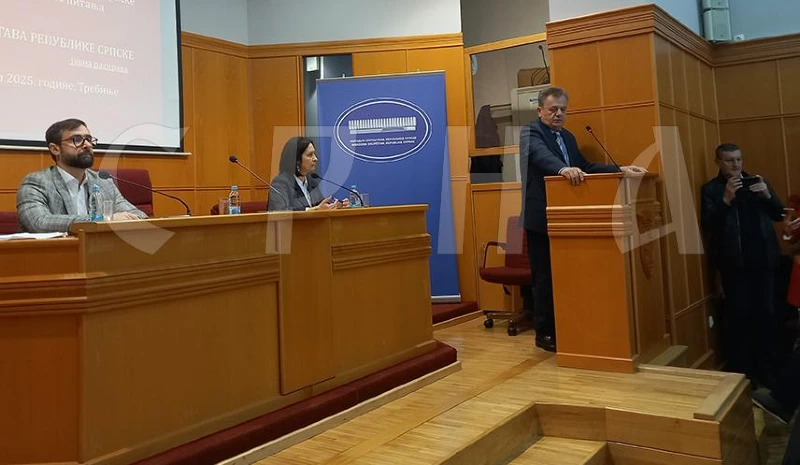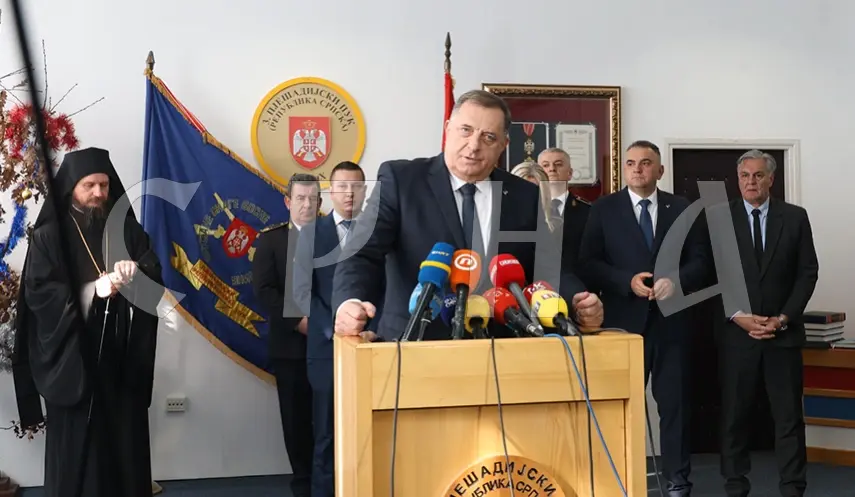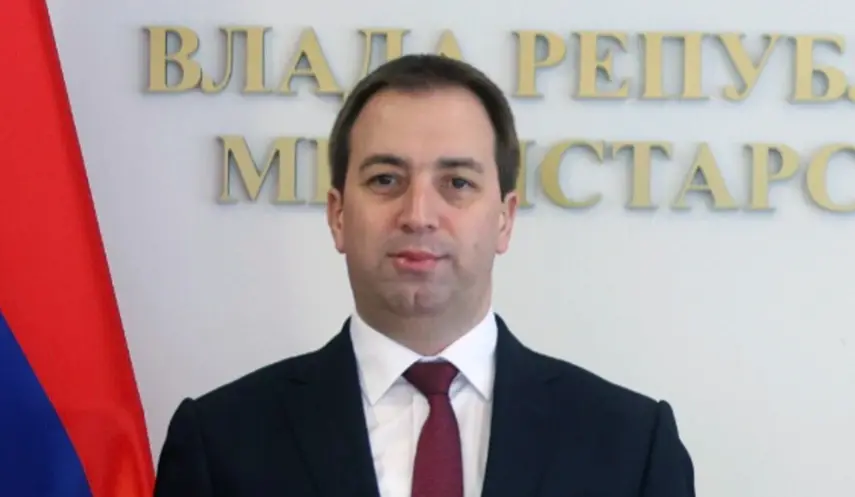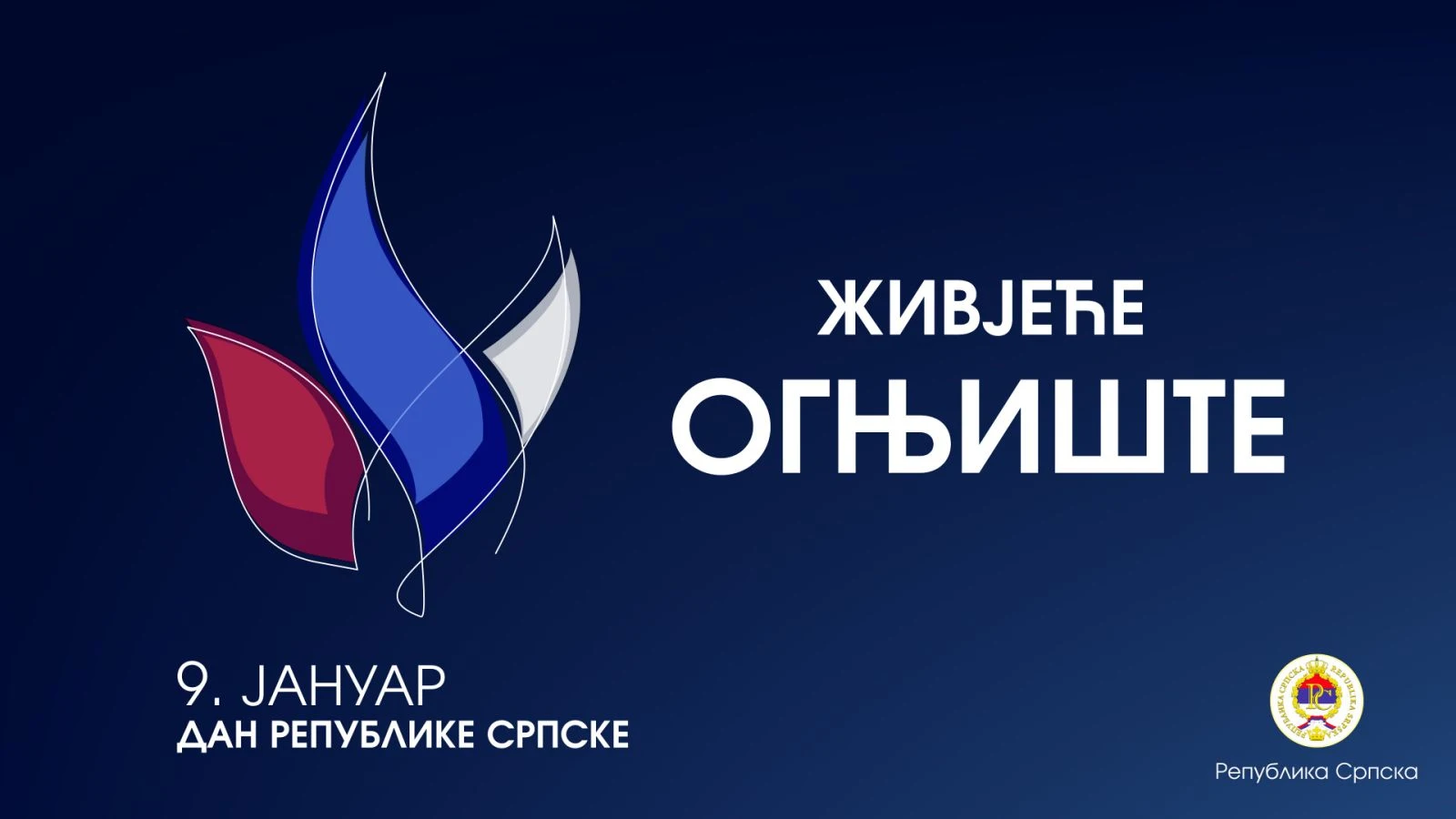POPOVIĆ: NEW CONSTITUTION SHOULD NOT CONSIST OF HIGH REPRESENTATIVES' AMENDMENTS
Republika Srpska - Trebinje - public debate
04/01/2025
14:58

TREBINJE, APRIL 1 /SRNA/ - The Head of the Working Group developing new Republika Srpska Constitution Vitomir Popović said that the new constitution should not consist of the amendments imposed by high representatives and raise the issue of the work of institutions transferred to the joint level, some of which were misused or failed to produce the expected results.
"The new constitution should include all the amendments that the National Assembly worked on and raise the issue of the work of those institutions that, in accordance with the Dayton Peace Agreement, were transferred to the level of joint institutions, some of whom were misused or failed to produce the results in accordance with the Vienna Convention that the contracting parties must fulfill their obligations in good faith and conscientiously," Popović told the press in Trebinje.
Before the public debate on the new constitution draft, he pointed out that the new constitution implies continuity with the old one, which was adopted on February 28, 1992.
Popović pointed out that the drafted Republika Srpska new constitution stipulates that Banja Luka is the capital.
"At yesterday's public debate in East Sarajevo, we had proposals from certain participants that East Sarajevo should be the administrative centre, but it is a matter for the competent authorities," said Popović.
He stated that the draft of the new constitution contains provisions on human rights and freedoms, which are mostly taken from the old constitution and are based on the provisions of the Dayton Peace Agreement.
"First of all, I am thinking of the European Convention on Human Rights and Freedoms, which is an integral part of the legislation both here and in the Federation of BiH /FBiH/," said Popović.
He added that there are also provisions on restoring confiscated or transferred competences, primarily of the Republika Srpska Army, which existed until 1999 or 2000.
Popović reminded that at that time the Constitutional Court made a decision that the army was under the competence of the entities, which was later transferred to the level of joint institutions via agreement.
"Representatives of public and political life believe that not only was it wrong, but the main goal of the transfer of competence in the field of defence in relation to BiH was not achieved, it could eventually be used for participation in certain peace missions organised within the UN, it was a complete failure from a defence point of view and character," said Popović.
He said that the draft new constitution also contains issues related to the border police, which was also under the jurisdiction of Republika Srpska, then issues of taxation, relations with the State Investigation and Protection Agency /SIPA/, the Intelligence Agency and other institutions, as well as issues related to the work of the Constitutional Court, the Court and the Prosecutor's Office of BiH.
"It goes without saying that, if the army is under the competence of Republika Srpska, then the provisions that speak about the competence of the President of the Republic must be supplemented by the fact that he is the supreme commander and commands the armed forces," said Popović.
He said that even the FBiH, which cannot be influenced, has the right to adopt its own constitution in the community of three constituent peoples and two equal entities that make up BiH according to the Dayton Peace Agreement.
"The draft constitution provides for full equality for all three peoples, equality in the use of alphabets - Cyrillic and Latin, the languages of the Serb, Croat and Bosniak peoples," said Popović.
He said that the text, i.e. the working material for the public debate, was prepared by a special commission, approved by the Parliamentary Constitutional Affairs Committee, accepted by the National Assembly in the form of a draft and submitted for public discussion.
Popović said that the Working Group will visit the entire Republika Srpska, listen to all objections and submit them to the Constitutional Affairs Committee to review them, and then submit them to the part of the commission that deals with writing the text, and for further procedure to the National Assembly.
When asked how the first Republika Srpska Constitution differs from the new one, Popović said that it underwent a large number of amendments, that those imposed by the then high representative Wolfgang Petritsch, who changed the internal structure of Republika Srpska, were disputed.
"Certain amendments were passed by the National Assembly related to the exercise of human rights and fundamental freedoms in accordance with the European Convention. When the Constitution has a large number of amendments, then it is not usual to amend it by making a refined text, but to go with passing a new constitution," Popović said.

CVIJANOVIĆ: GRATITUDE TO DONALD AND MELANIA TRUMP FOR CHRISTMAS AND NEW YEAR GREETINGS

ŽUPLJANIN: THERE IS NO END IN SIGHT TO INSANITY COMING OUT OF SARAJEVO

BOSNIAK PRIVATIZATION OF BiH HAS BECOME DISGUSTING

SELAK: BiH CONSTITUTIONAL COURT SHOULD REJECT REQUEST TO ASSESS CONSTITUTIONALITY OF GOVERNMENT OF REPUBLIKA SRPSKA



